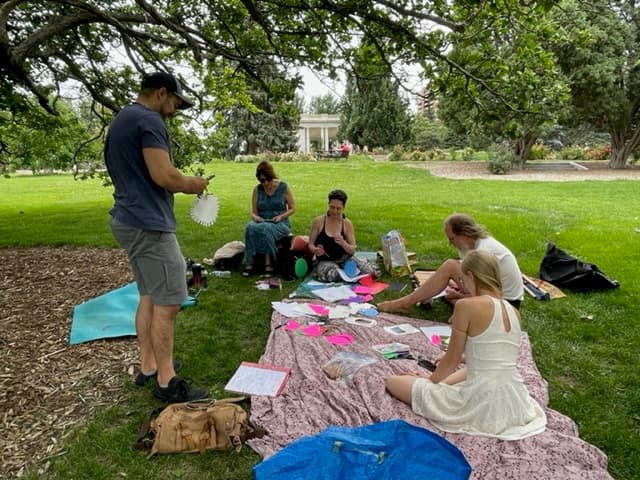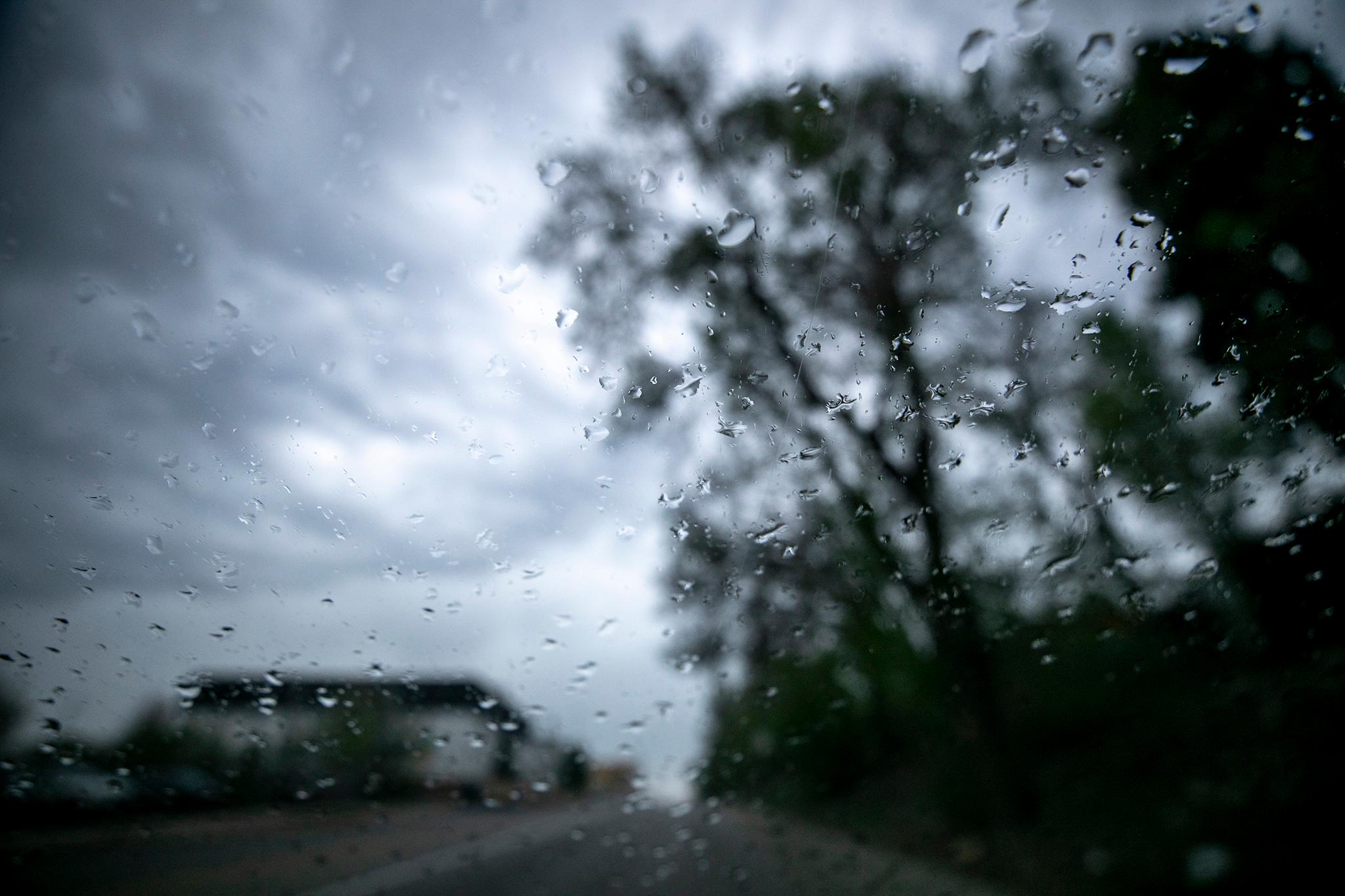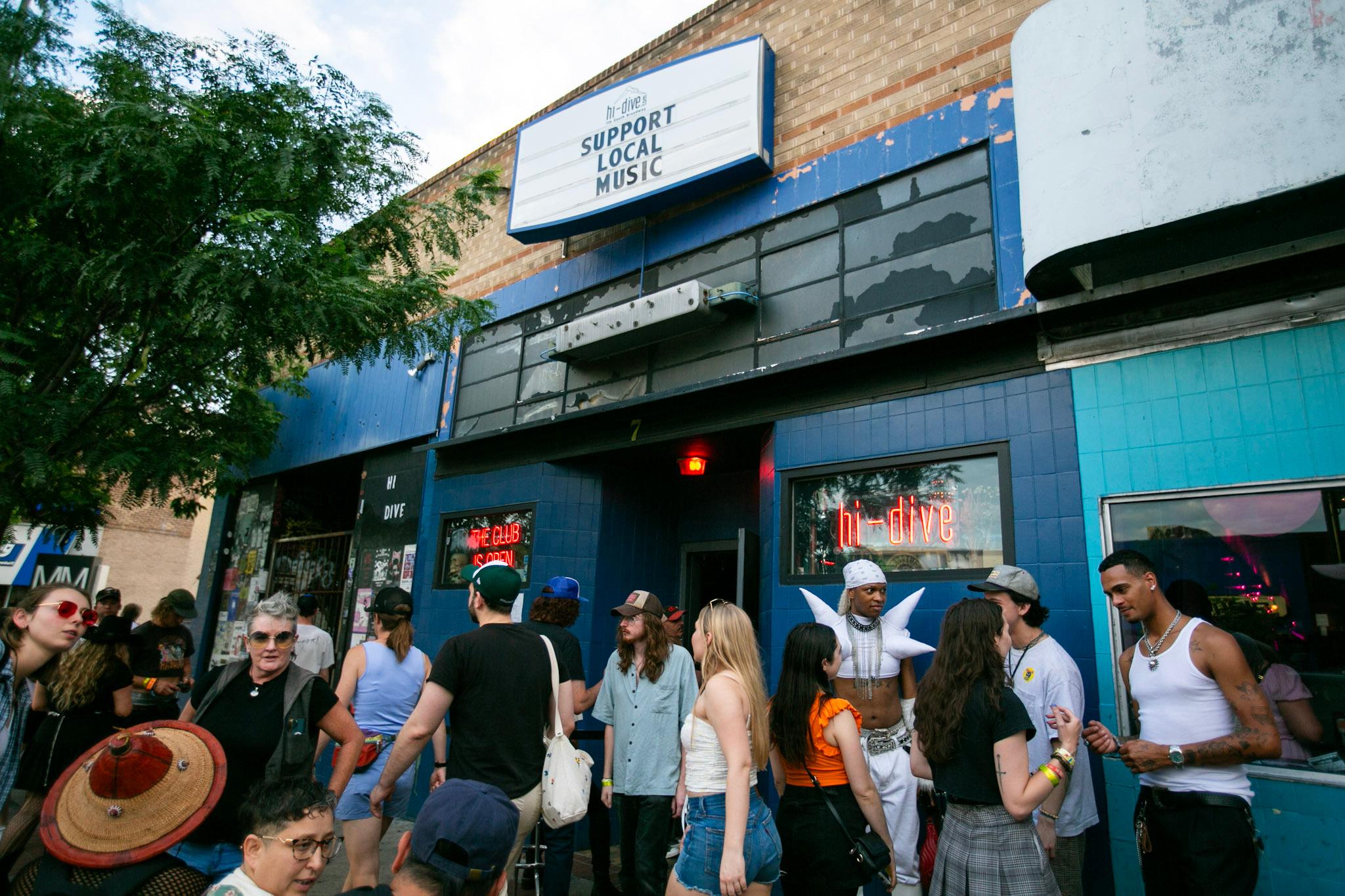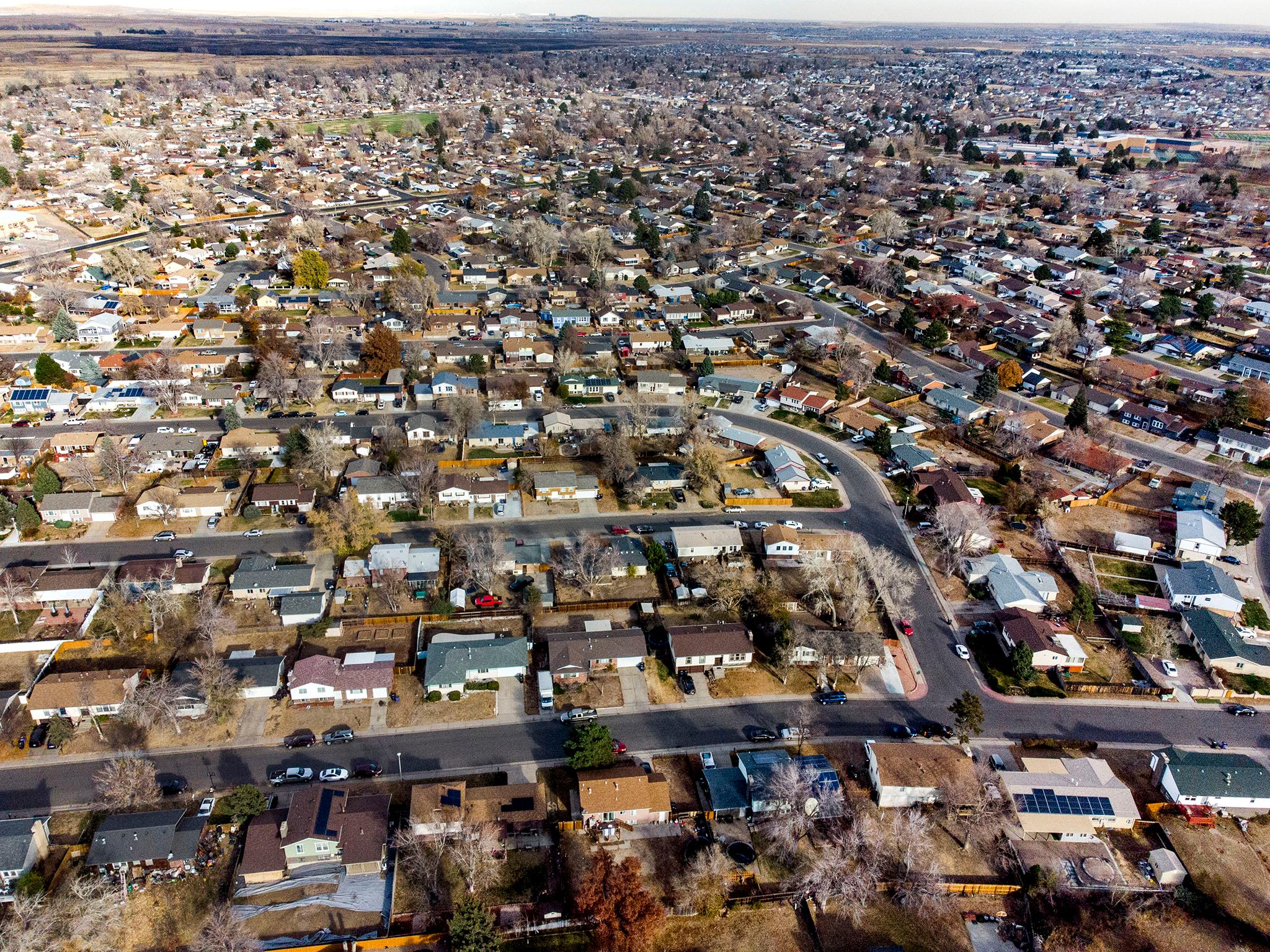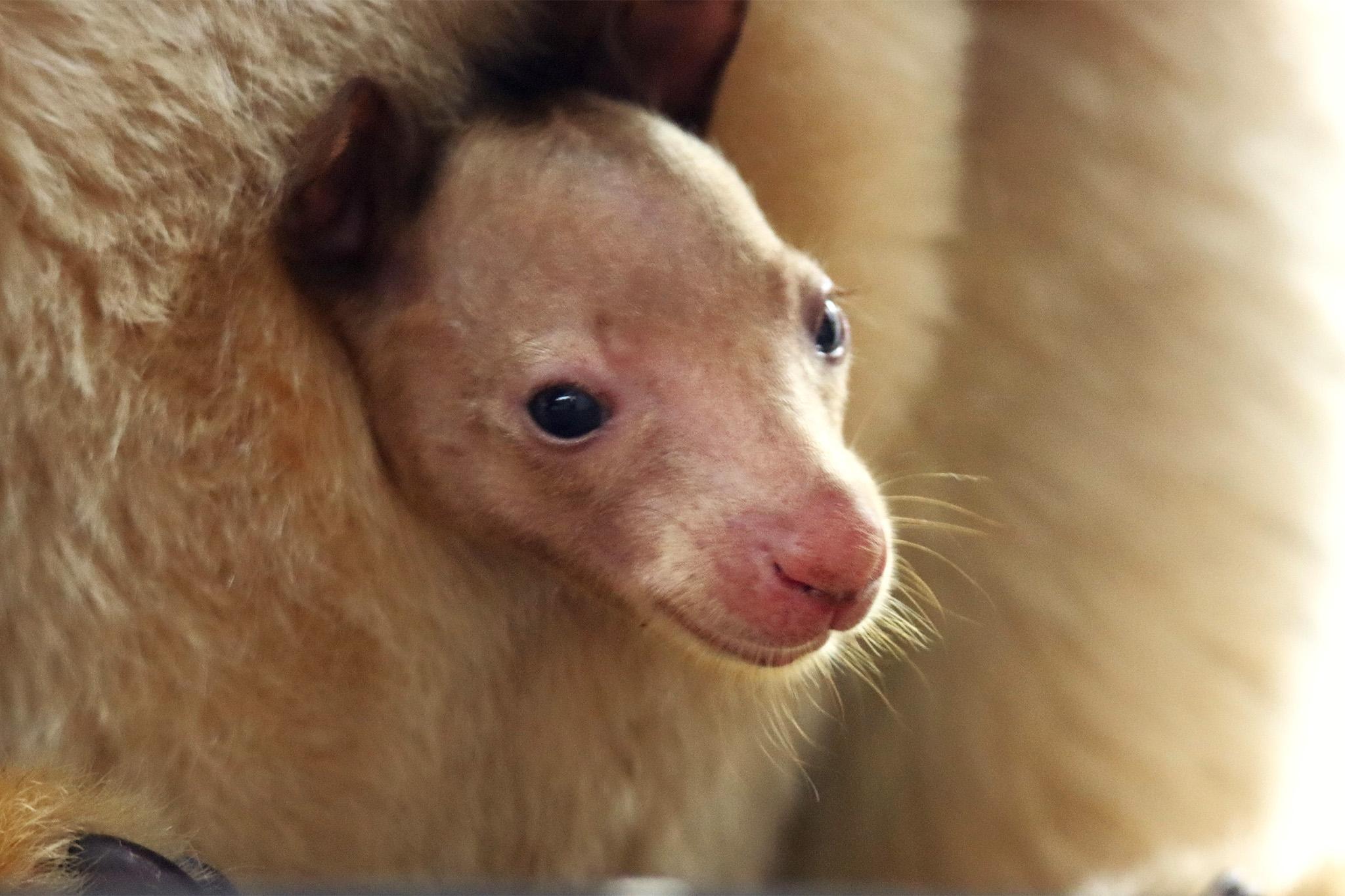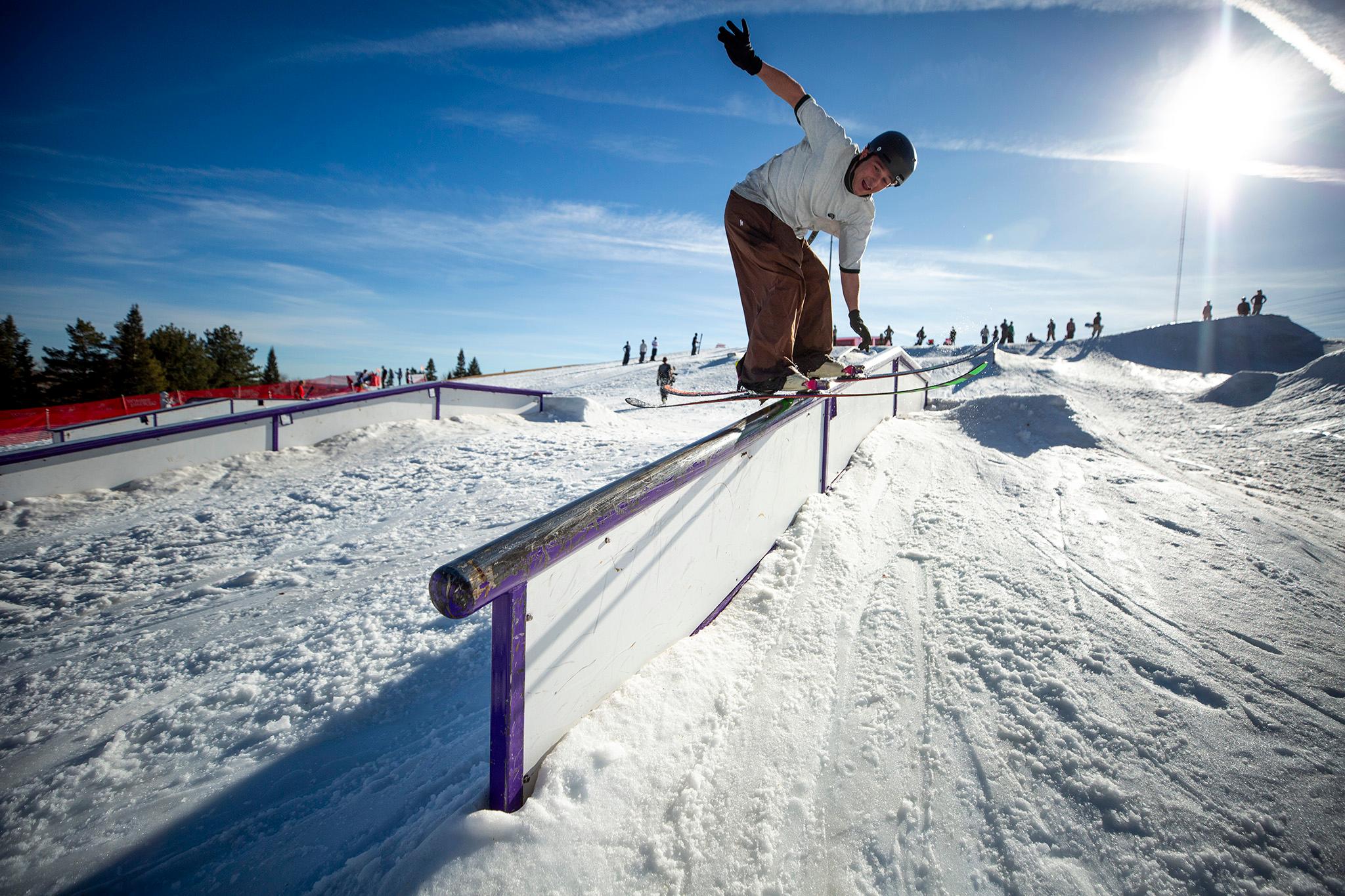On Father's Day, I walked Cheesman Park searching for dead trees. I found many.
I also found a poet, with yin-and-yang earrings encircled by sunflower petals. Under a hawthorn, she arced her body, as a wizardly man with long grey hair and a scraggly beard blew into a pan flute. The man, John Rasmussen, plays music as Jochanaan at the Mercury Cafe every Sunday night in the group Art Compost and the Word Mechanics. The woman, born Jessica Miriam Chernila, often reads there.
These days she goes by a modified version of her middle name: Mir-I-Am.

Her parents -- the poets Carol Eve Nash and the late Lenny Chernila, aka Lenny C., aka The Professor, aka "the founding father of Denver poetry" -- were steeped in the city's eastside Ukrainian Jewish community. They drew their daughter's Hebrew middle name, Miriam, from the first woman poet in the Bible, Moses's sister, remembered in Exodus as a prophetess who danced, sang and played the timbrel after God wiped out the Egyptian army at the Sea of Reeds as the people of Israel fled slavery.
Recently, Mir-I-Am has found new meaning in her name.
"In my ancestral language, which is Polish, Russian and Ukrainian, 'mir' means peace," she said. "So when you take the syllables apart, it's like reminding myself that I am peace."
Rasmussen and Mir-I-Am waited for family and friends to arrive to hang poems from the branches of the hawthorn at this semiannual tribute to her father. The tree is close to the park's neoclassical pavilion where Lenny's memorial had taken place seven years ago, back when the adjacent fountains flowed.
Under the Yule marble structure, weekend yogis stretched to soul music. A rollerblader zipped down the grassy hill and shot away on a trail. The city had turned the fountains off early in the pandemic. Without water for more than two years, the rectangular pools had cracked.
West of the pavilion, a commercial real estate agent walking his pup looked up at the mountains and wondered where all the snow had gone... it should be there in June... something's wrong with the climate... things are changing too fast...the city's neither as cool nor as friendly as it once was... and it's so unbelievably expensive...you've gotta miss the days when Denver was still a cowtown.

The real estate agent looked down at the dried up pines in the park and blamed the needle-less branches on old age. Denver Botanic Gardens Director of Outreach and Senior Curator Panayoti Kelaidis later guessed the dieback was from greywater use. Whatever's killing the trees at Cheesman, widowmakers threaten loafers on the park's otherwise verdant lawn.
The hawthorn -- which, according to Celtic myth, offers love and security -- was fully alive, sandwiched between two goldenrain trees. The poets gathered underneath, on thick blades of grass.
As morning burned on, Mir-I-Am's brother and poet Josh Chernila, their mother Nash, and friends and poets from the Mercury Cafe scene, including Emil Acevedo, gathered under the tree to glue poems to cheap paper plates and construction paper cut into hearts and spirals.
The poets would read and then hang the poems in the tree in memory of Lenny C. and several other poets, all women, who died in recent years.

There was the poetry scene's grandmother, Barb Test, who passed away in May. And Kit Muldoon, whom Mir-I-Am remembered for her live poetry readings and backyard gatherings called SYNCHRO-Destiny. And Natasha "ItsRealLight" Leonora Spence, a hip-hop artist and poet who collaborated with Mos Def and Malcolm Jamal Warner, produced CDs and books, and performed around the country before dying at a friend's home in Colorado Springs at 34.
Mir-I-Am and friends have been hanging poems from the tree for nearly a decade.
"I think it was 2013, before my father passed away," she said. "It was actually originally just an alternative for a Christmas gathering."
She and her friends would decorate a spruce tree with poems and exchange homemade gifts. But Christmastime proved too busy for most people to come, so she decided to throw the event around the solstice.
After her father passed away, in 2015, they gathered on his birthday, which fell on the autumn equinox, she said. "We began to gather as a requiem for him."

Rasmussen has been a regular for years. Others were there for the first time.
What brought the newcomers? "Poetry," Acevedo said.
"We climb the tree, we hang the poems on different boughs of the tree, every solstice and every equinox," Mir-I-Am said.

The poems the group reads are about death and love and living and listening. Some are hardscrabble Beat musings. Others are dense with metaphor. All ring pretty true.
Standing in Cheesman Park, Josh, Lenny's son, remembered growing up in Wash Park and attending Washington Park Elementary School, which has since been converted into condos.
As a kid, he would play football with friends in Cheesman Park and attended prom there, too. This was his childhood stomping ground.
His father eventually lived in a tower not far from the park, where hundreds gathered to mourn him after he died. This gathering, seven years later, was smaller. The shadow of Lenny C. still loomed over Josh.

"It's a strange thing, having to do something so mundane as live your life and then be raised up by this really fascinating, transcendent character," he said. "And so you have to be a real person, but in the back of your mind, you're dealing with all of these kinds of expansive concepts and trying to wrestle with the realities of them.
"And ultimately, it forces you outside of some of the materialism traps and what dad used to call death-culture traps," Josh said. "And it forces you to be very real and honest about things. And it's very helpful in sort of tracking down and killing off the ego traps that just being a human being leaves you open too."
Josh struggled to describe how his father's philosophical, poetic and spiritual power shaped the family, as he crashed from one metaphor to another.
"It's great to have somebody in there taking down tall grass and getting you to a place, but then what do you do with it?" he continued. "Being a poet or a shaman or whatever, it doesn't make your life perfect. It just alienates you from the people who are trapped, unless you do it with a lot of compassion, and even that can be condescending.
"You have to actually be a real-life person," he said, "and sort of have a map of all the pitfalls and self-made manacles that people are stuck with, and being able to walk that path, that tightrope of, on the one hand, you just want to transcend and the other hand, you have to deal with the imminent realities of human existence and try and help people.
"Compassion is the only thing that actually gets you through this."
That's what Josh's dad taught him.

The poems hung from the Poet Tree don't always stay attached. By nature, they are impermanent, just like the trees.
"I went to a yoga class," Mir-I-Am recalled. "And there was a woman there who said, 'I was walking through the park and this poem hit me in the head. It was crazy.' I was like: 'Yay! The Poet Tree.' She's like, 'Oh, my God, it made me cry. First, because it hurt. But then it was like, the poem itself was so meaningful, I had to put it on my fridge, and I look at it every day.'"
Some poems spread. Others bleed away in the rain, fade in the sun or decay.
"My hope is that they don't have to stay on the tree," Mir-I-Am said. "But I hope that they're there for someone who needs to see it. Or someone takes it off the tree and brings it home because it's meaningful or leaves it in the tree for another person. I like to put them up on the higher bough so people will climb the tree."

